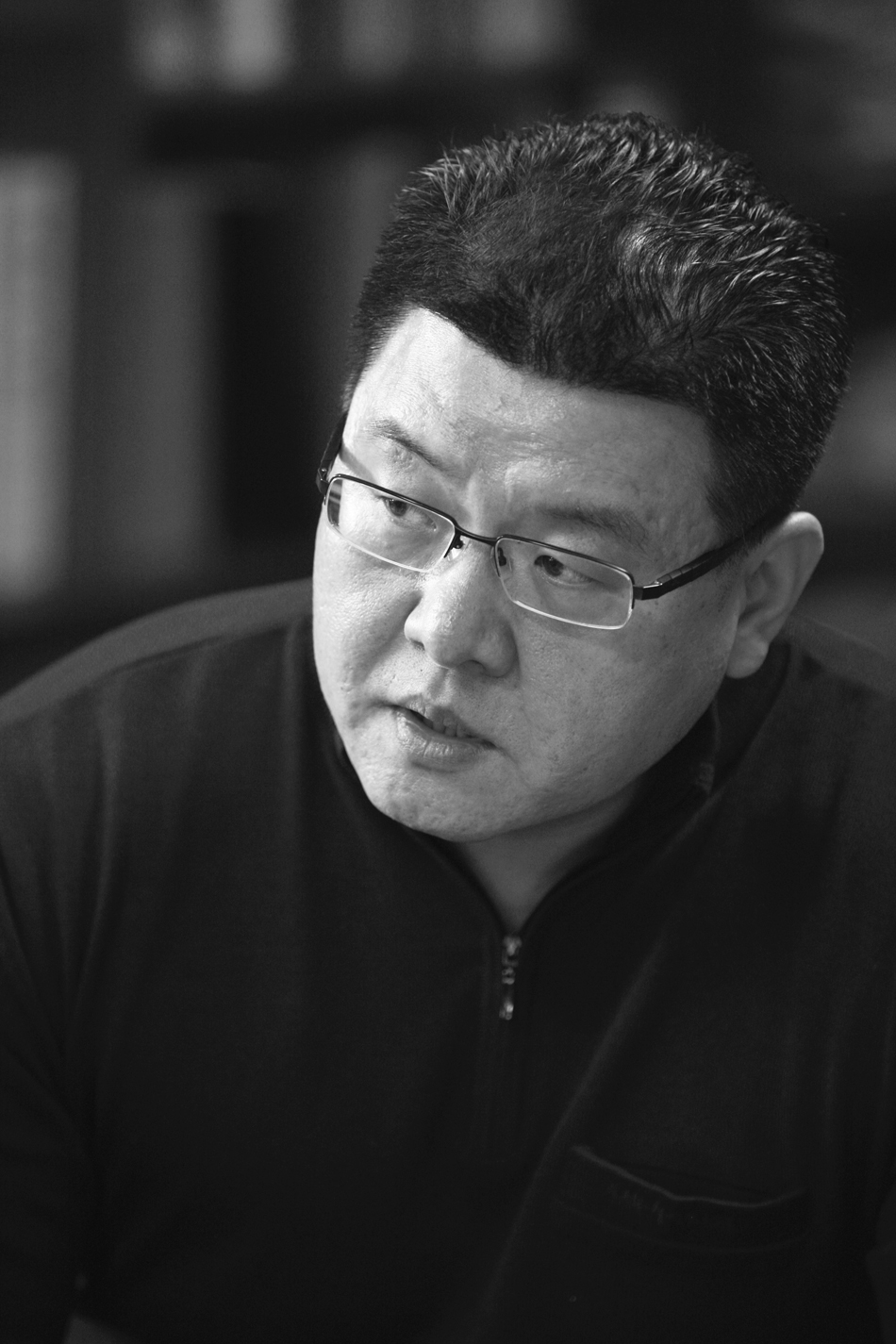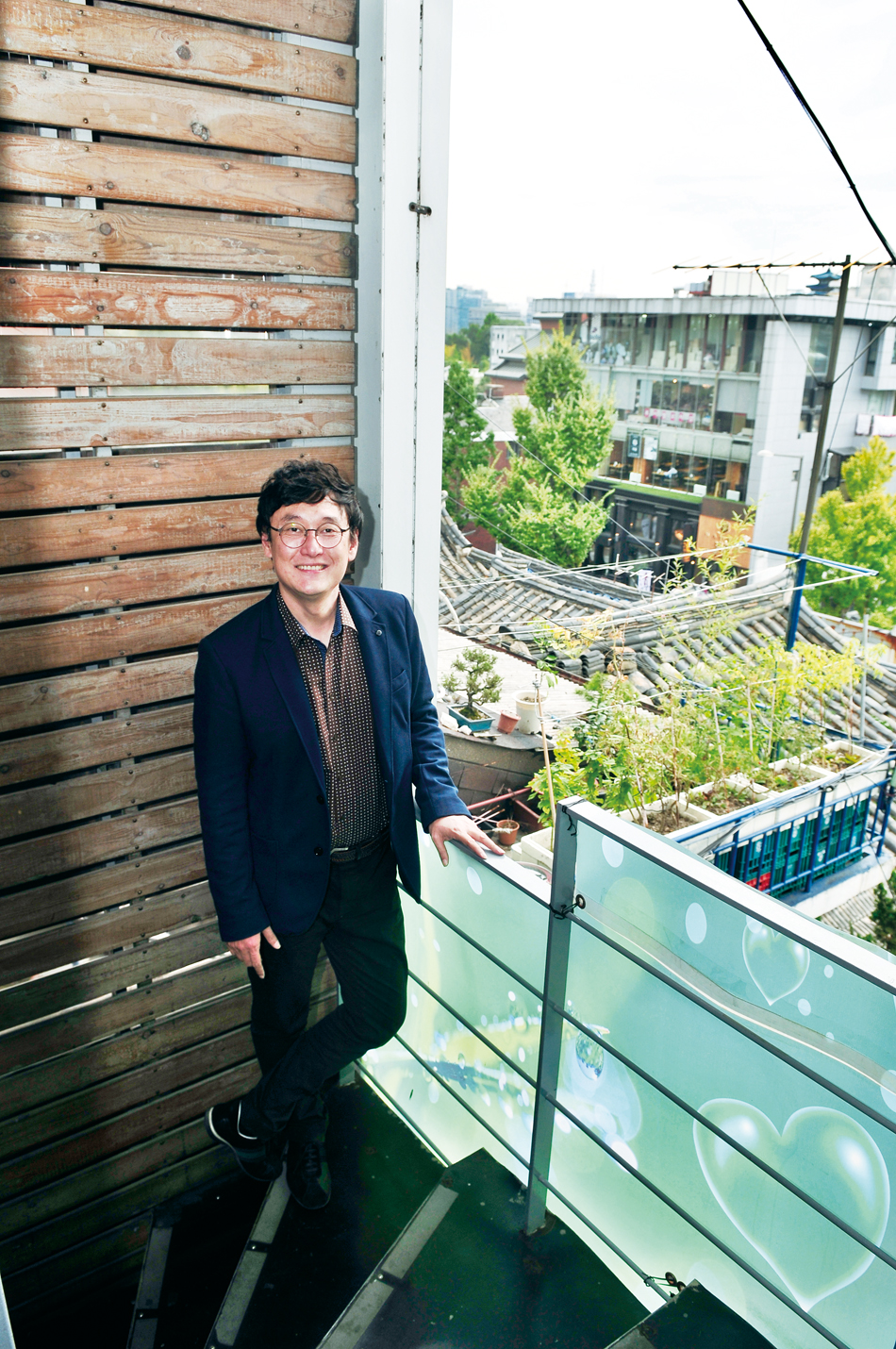[box_light]Yang Woosuk[/box_light]
Director of hit film The Attorney is all about simplicity
Written by Kim Hansol
On January 19, The Attorney joined the list of nine movies in Korean film history to have attracted more than 10 million viewers, which is roughly the same number as the economically active population in a country of 50 million people. A feat remarkable by any standards, it seems even more incredible when considering it was director Yang Woosuk’s debut film.
This may be his directorial debut, but Yang is no novice in the film industry, having worked as a producer and a technical specialist for countless projects since he left school. He is also a creative director, having written stories for several webtoons including Steel Rain, in which he imagines the torrential aftermath following Kim Jong-il’s sudden death.
In The Attorney, based on the true story of late President Roh Moo-hyun’s days as a human rights lawyer in the early eighties, Yang Woosuk demonstrates his abilities as a seasoned storyteller. Protagonist Song Woosuk (named after the actor Song Kang-ho and the director) is a self-made man who becomes a lawyer with just a high school education, something scoffed at by other lawyers. Instead trying to get his peers’ respect, however, Song focuses on his family and friends—and on making money, taking jobs usually reserved for notaries. But when his close friend’s meek son is framed in a McCarthyesque conspiracy to accuse a book reading club of treason, he is suddenly awakened to the injustices manifest in Korea’s totalitarian era.
A controversial start
Unlikely hero narratives are as common in Korea as anywhere else, yet this particular film reached out to so many. Yang explains his motives for the film in his office at Locus Creative Studios, where he still works as the Executive Director of the Writing Division to share his insight.
The last few months of his life have been a Cinderella story: He was suddenly selected as the director of his own script to the indie-budget movie; the film successfully cast top star Song Kang-ho; the project blew up and made history. Yet he demonstrates the serene presence of a moai statue, seemingly untouched by all the commotion and excitement.
“I think in Korea, time is more condensed than in any other country. We as a society are aging prematurely. Many changes occur in a short period of time, forcing people to let go and forget the past very quickly.”
“What I felt was…concern,” Yang explains. “This story isn’t without controversy, not only because of its content but because it’s about someone very recent in our memories.” The surrounding controversy and emotions regarding the late president resulted in the film being criticized before the project even took off. “I was afraid how the film might hurt those involved,” he elaborates.
The building tension and nerves consumed so much of Yang’s attention and energy that the film’s surprising success was more a cause for relief than it was for celebration. “I was just relieved that my message was getting across the right way.”
Simpler than fiction
Yang speaks as if writing, picking each word carefully, evading exaggeration. He studied philosophy at university, reading literature and history obsessively all the while, hoping to better understand life. But for a work of a man so pensive and sensitive, the narrative of The Attorney is simple. The good and evil are set in black and white. Any implications of communism or even student activism have been removed from the book club students, portraying them as perfect sacrificial lambs while the judge, prosecutors and the police are manic minions with no inner conflicts. Song is no exception; his transition from a money-loving tax attorney to a devoted human rights lawyer is so abrupt it’s as if he were flicked on with a magic wand. Did Yang create a simpler version of reality to suit the audience intentionally? Wouldn’t that be a distortion of facts?
“For one thing, this is fiction. But the truth is that his [late President Roh] transition was even more unprecipitated.” In the movie, Song knows the student and is good friends with his mother, but in real life, he (Roh) had no connection with any of his clients. And once he made that transition, he never turned back.
“But in a way, I don’t think he was suddenly changed,” Yang muses. “What we need to remember is that he was a lawyer, a man who pulled himself up by learning the law.”
Yang explains that Roh was a man who believed in the legal system and its ability to sustain society. What he sees in the students’ case isn’t just human rights abuse; he sees a blatant distortion of common sense and law, the two things he reveres most.
The New York Times attributed The Attorney’s success in the Korean market to memories of dictatorship still being fresh in the Korean psyche. Does Yang agree with that interpretation? What is Yang’s own take on why his narrative was so well-received?
Condensed time
“No…I think thirty years ago for Koreans is not a fresh memory. I think in Korea, time is more condensed than in any other country. We as a society are aging prematurely. Many changes occur in a short period of time, forcing people to let go and forget the past very quickly.”
According to Yang, for Koreans, the eighties is a distant past. People who understood the movie at a more political level are actually audiences in their late twenties and early thirties. They’re not the ones being tortured, but they feel more oppressed and fatigued than any previous generation.
“People who remember the eighties felt nostalgia more than anything else,” Yang says.
Nostalgia—a reminder of the eighties was exactly what Yang wanted for his audience in their forties and fifties. He wanted to evoke their memories of youth and the values they once stood for. To Yang, the eighties were not only their youthful years but when Korea as a nation was in its youth.
“Most of this generation doesn’t buy content. They don’t think of cultural products as something you pay for. These are the people I wanted to share the story with.” As to why Yang simplified his narrative techniques, he responds, “I didn’t water it down, but I did try to use faculties of fiction to make the story easier to follow and more enjoyable.”
The people whom he made the film for are usually too exhausted and time-deprived to sit and contemplate ambiguity on their off-days. “I used to love art house films in my twenties. I think I’m smarter than I was at that age but now I don’t have the energy for that stuff,” he says.
For Yang, he wanted to evoke memories of a vigorous and young Korean society, struggling to grow and develop. “The eighties just became a symbolic medium for me to reach my audience.”












